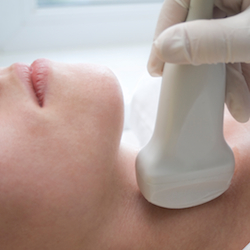This case study outlines a treatment protocol for a 34-year-old female who was diagnosed with Hashimoto’s thyroiditis (HT), iron and vitamin D deficiency in December 2015 through Johns Hopkins Medical Center. When she sought support at the Functional Nutrition Practice in February of 2016, she reported feeling “ravenously hungry,” having low energy, low libido, bloating, heart palpitations, cold hands and feet, and mental sluggishness.
Hashimoto’s thyroiditis (HT) affects more than 14 million individuals in the United States, most of them women. 
This case report describes the management of a 34-y-old female with HT who declined thyroid replacement therapy and was successfully managed for a period of 5 mo. The patient was advised to follow a phytonutrient rich diet (eg, berries); avoid sensitive foods (gluten and soy); and consume quality fats, fermented foods, and filtered water. Nutritional supplementation of vitamins (B complex, D3), α-lipoic acid, coenzyme Q10, magnesium, omega-3 oil (DHA/EPA), and probiotics were used in conjunction with an herbal tincture. Published in Alternative Therapies in Health Medicine, 2018.
Case study practitioners: KerenDolan,MS,CNS,LDN,DCN, is an integrative functional nutritionist and clinical herbalist at Nourish Well, LLC, in Northern Virginia. Heather Finley, MS, RD, is a registered dietitian at Dietitian Heather, LLC, in Texas. Margo Gasta, MS, RD, is an integrative functional dietitian at Nutrition by Margo, LLC, in Colorado. Sasha Houseman, MS, DNC, is a functional nutritionist at Flatirons Integrative Health & Nutrition, in Colorado.
In this Hashimoto’s Thyroiditis Case Report you will learn:
- Patient’s Health History
- Protocol Timeline: Acupuncture, Dietary Supplement Recommendations, Detoxification Plan
- Nutritional and Botanical Supplement Plan
- Biomarker Assessments
- Nutritional Deficiencies
- Personalized Therapeutic Recommendations
- Follow Up and Outcomes
This article is gated for registered users in agreement with our partners at Alternative Therapies in Health and Medicine. This is an additional registration to our newsletter. By registering, we can offer subscription content free of charge. Thank you.
To gain access to this article and the rest of our extensive database of full-text articles, please register below or log in here.





